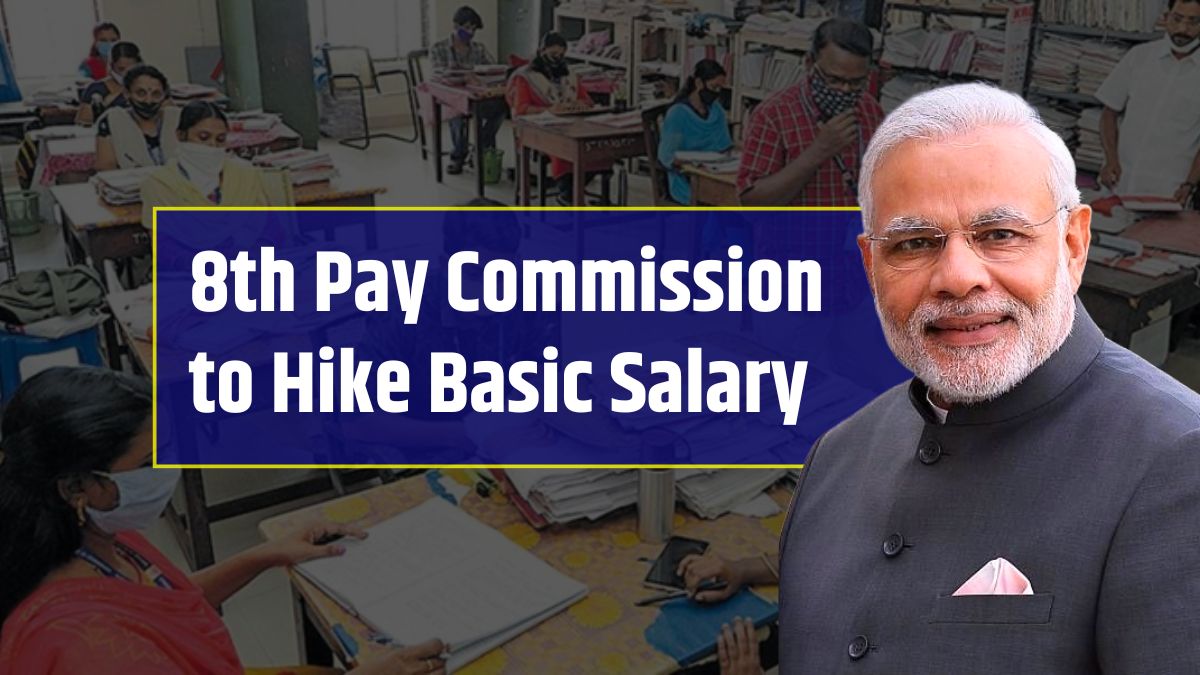8th Pay Commission Salary Hike – If you’re a central government employee or pensioner, there’s good news on the horizon. The 8th Pay Commission is expected to bring a major salary hike, giving a big financial push to millions of employees across the country. With rising inflation and cost of living, this new pay commission is seen as a much-needed update to income structures. While nothing is officially confirmed yet, here’s what we know so far about the expected salary hike, when it might kick in, and who stands to benefit.
What Is the 8th Pay Commission?
The 8th Pay Commission is the upcoming revision of the central government’s pay structure. These pay commissions are usually set up once every ten years to evaluate salaries, allowances, pensions, and other benefits for government employees. The last one, the 7th Pay Commission, was implemented back in 2016. So now, with 2026 approaching, the next round of salary updates is on the cards.
Why Is It Needed Now?
Over the past several years, employees and pensioners have been feeling the heat of rising expenses. Real income, after adjusting for inflation, has seen a drop for many. The 7th Pay Commission didn’t fully match inflation trends, especially for those at the lower and mid-level pay grades. This has led to increasing pressure on the government to revise the salary structure sooner rather than later.
How Much Will Salaries Increase?
Although the government hasn’t announced official numbers yet, experts and employee unions have come up with some estimates based on previous trends. Here’s a look at how salaries might change:
- Employees at Level 1, currently earning a basic pay of around 18,000 rupees, may see a jump to nearly 26,000 rupees
- Those at Level 6 might go from 35,400 rupees to 50,800 rupees
- Senior officials at Level 13 and above may see their basic pay rise from around 1.2 lakh rupees to 1.75 lakh rupees
On average, the expected hike across different levels is between 40 to 45 percent.
What About the Fitment Factor?
One of the key things that determine salary revision is the fitment factor, which is a multiplier used to revise pay. Under the 7th Pay Commission, the fitment factor was 2.57. Reports suggest the 8th Pay Commission may increase it to 3.68 or more. That alone could lead to a big jump in take-home pay. For instance, if your basic pay is 25,000 rupees, a fitment factor of 3.68 could push your revised pay to 92,000 rupees.
Additional Financial Benefits
The 8th Pay Commission is not just about revising basic pay. It’s also expected to impact several other areas, such as:
- House Rent Allowance (HRA)
- Transport Allowance
- Dearness Allowance (DA)
- Gratuity and pension calculations
With updates in these allowances, employees can expect their overall earnings to go up even further.
When Will It Be Implemented?
As per the usual timeline, the 8th Pay Commission is likely to be implemented from January 1, 2026. However, some early action could be seen in 2025, possibly during the Union Budget. A committee may be formed early next year to start discussions and prepare recommendations.
Who Will Benefit from It?
The hike won’t just apply to central government employees. A large number of people are likely to benefit, including:
- Central government staff across all departments
- Railway and defence personnel
- Postal department employees
- Retired pensioners and their families
- Autonomous bodies that follow the central pay structure
What Are Employee Unions Demanding?
Employee unions have already placed several demands before the government. These include:
- A minimum wage of 26,000 rupees or more
- A fitment factor of at least 3.68
- No delay in implementation beyond 2026
- Pension benefits to be revised alongside salary
- A pay review every 8 years instead of every 10
These demands are under review, and it remains to be seen how the government responds, especially in the upcoming budget announcements.
Challenges for the Government
Of course, rolling out a new pay commission won’t be easy. Some of the major challenges include:
- The financial burden on the central budget
- A rising pension bill
- Coordination with state governments, many of which follow central pay models
- Allocating resources without compromising on welfare and infrastructure spending
Despite these hurdles, the pressure from employee groups and the need to tackle real income stagnation may push the government to act sooner.
The 8th Pay Commission is shaping up to be a major game changer for central government employees and pensioners. While we still await official confirmation, the projected figures point to a strong possibility of a 40 to 45 percent salary hike. With inflation eating into people’s incomes, this revision could come as a much-needed relief.
Whether you’re a working employee or a retired pensioner, it’s a good idea to keep an eye on announcements related to the 2025 Budget and government circulars. The countdown to 2026 has begun, and the coming months could bring big financial changes.





